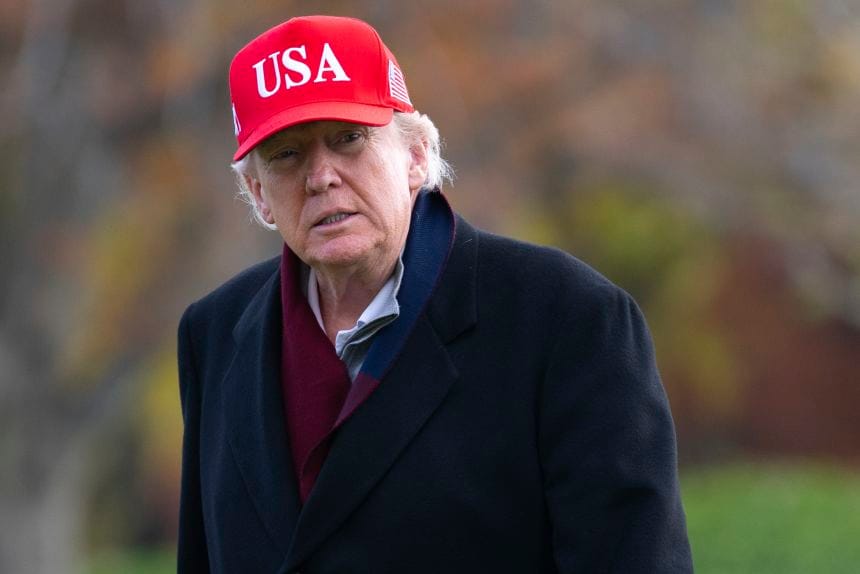White House Walks Back Reports on Trump’s Health-Care Proposal Amid Rising Obamacare Premiums

Trump’s Health-Care Plan Still in the Works
The White House says President Donald Trump is still shaping a health-care proposal aimed at tackling rising Obamacare premiums, and that reports circulating over the weekend may not reflect what the administration ultimately releases. The message comes as anticipation grows for a major announcement on how the administration intends to lower health-care costs.
White House Press Secretary Karoline Leavitt told reporters Monday that details leaked to the media may not match what Trump intends to announce. She emphasized that internal sources often misread or mischaracterize the president’s final decisions.
“As you all know, sometimes you report things and then President Trump comes out with an announcement, and those things are not always true from what you hear from sources inside the building,” Leavitt said, signaling that the health-care plan remains fluid.
Mixed Signals From the Administration
Over the weekend, Treasury Secretary Scott Bessent said the administration planned to reveal its health-care initiative this week. But on Monday, Leavitt avoided confirming any timeline, leaving open the possibility that the plan could be delayed.
The White House did not respond to inquiries asking whether the proposal would still be released this week.
Leavitt maintained that the president is “very much involved” in discussions and is focused on releasing a plan designed to lower costs for consumers and address problems in the Affordable Care Act system.
While she provided no specifics, she noted that Trump will speak for himself when he is ready to share the full details.
What the Early Draft Looked Like
According to individuals familiar with the preliminary version of Trump’s proposal, the plan included several major changes:
- Larger subsidies for people purchasing insurance on the Affordable Care Act exchanges
- New income limits determining who qualifies
- A requirement that every enrollee pay at least a small monthly premium
These details suggest a shift toward targeted support rather than broad subsidy expansion.
But the news came with a major complication: the enhanced subsidies established during the Biden administration are set to expire at the end of this year. If they are not extended, premiums would increase for more than 20 million Americans who rely on ACA marketplace coverage.
Congressional Pushback and a Sudden Delay
Trump was reportedly planning to roll out the health-care plan on Monday. But according to MS NOW, congressional backlash forced the White House to postpone the announcement.
The cable network said unnamed sources described increasing resistance on Capitol Hill, where some lawmakers objected to elements of the proposal. With opposition building, the administration appears to be recalibrating its rollout strategy.
Following the report, health-care and hospital operator stocks pulled back, reflecting investor uncertainty about new regulations and potential subsidy changes.
The Political Backdrop: A High-Stakes Battle Over Subsidies
The debate over Obamacare subsidies has already sparked major political tensions this year. A government shutdown earlier in 2024 was triggered by Democrats demanding an extension of the enhanced subsidies as part of the federal funding negotiations.
The crisis ended only after a compromise: Republicans agreed to allow a vote on the subsidy extension issue, which is scheduled for next month.
This means Trump’s forthcoming proposal could directly influence that vote and reshape how both parties frame the debate on health-care affordability.
Why the Issue Is So Urgent
The enhanced subsidies under the Biden administration drastically lowered monthly premiums for millions of Americans. Without them:
- Insurance costs would rise sharply
- Middle-income families could face significantly higher monthly bills
- Millions may reconsider coverage or switch to cheaper, less comprehensive plans
- Premium increases could become a major political flashpoint in the 2024 cycle
Trump’s proposal could attempt to preserve, replace, or reshape these subsidies, making the outcome important for both health-care markets and the upcoming election narrative.
What’s Next for the Administration’s Plan?
The White House is navigating a complex landscape. The administration wants to present a plan that lowers costs and signals political strength, but it must also win over skeptical lawmakers and manage public expectations.
Leavitt’s comments suggest the administration is preparing a more polished and possibly revised proposal than what has leaked. That could mean:
- Adjusting subsidy levels
- Redefining income thresholds
- Adding incentives for enrollment
- Introducing cost-control measures targeting insurers or providers
- Packaging the plan with broader reforms to increase Republican support
But until Trump presents the plan himself, none of these elements are confirmed.
A Proposal That Could Shape the 2024 Debate
Health care remains a deeply influential election issue. Rising premiums, insurer withdrawals, and subsidy debates have once again put the spotlight on the Affordable Care Act and its future.
Trump’s revised proposal, once unveiled, will immediately become a central topic in Washington. It may influence both public opinion and upcoming legislative fights. And with the ACA subsidies expiring soon, the political stakes couldn't be higher.
For now, all eyes remain on the White House as the administration decides when—and how—to reveal its plan.
